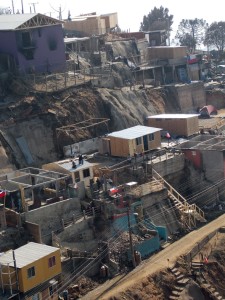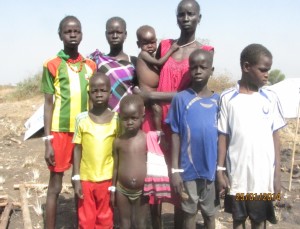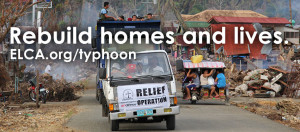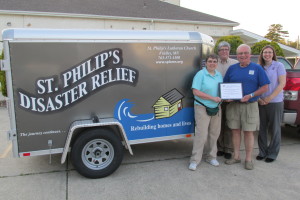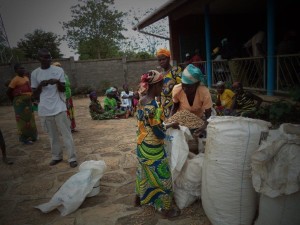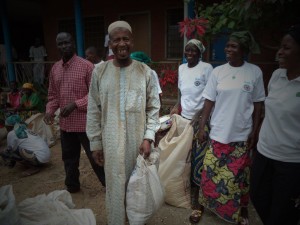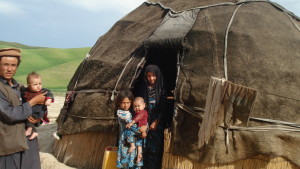
Following the series of rains, floods, and landslides, the affected population scattered across the north of Afghanistan face challenges in accessing shelter, water, food, and health services.
Children pose for the camera in front of their home.
During the last week in April and the early part of May, monsoon rains drenched northern Afghanistan, causing flash floods. On May 2, the continued heavy rains triggered a landslide and buried a village in Abi Barik, causing significant damage to homes and agriculture and the loss of many lives. Overall, more than 120,000 people have been impacted and more than 675 people have been reported dead.
Lutheran Disaster Response, with our partner, Church World Service, is providing immediate needs, such as food, shelter kits and hygiene kits. We are also assisting in mid- to long-term projects of rehabilitating livelihoods, restoring irrigation systems and providing disaster risk reduction.
Livelihood Rehabilitation
Cash-for-work programs will be made available to 570 families who will be able to assist in cleaning up and rebuilding their villages while receiving cash grants to be used for their own disaster-related expenses. The disaster impacted everyone in different ways, and the cash grants allow families to prioritize and take care of their own individual immediate needs.
Irrigation Restoration
Restoring irrigation systems will provide an opportunity for cash-for-work projects and will restore crop production on agricultural land.
Disaster Risk Reduction
1,200 people will participate in disaster risk reduction services, which will provide education on disaster risks and how to be prepared. Disaster risk reduction will help increase the resilience of the flood-impacted communities.
Thanks to your gifts, Lutheran Disaster Response is able to provide hope and healing to our brothers and sisters in Afghanistan who were impacted by the floods and landslide. We will continue to walk with them on their journey of rebuilding and renewal. If you would like to help support Lutheran Disaster Response’s work around the world, please visit the Lutheran Disaster Response giving page.

